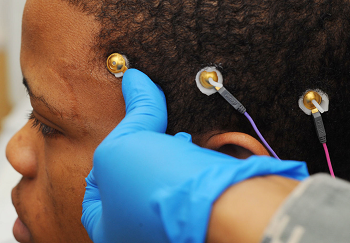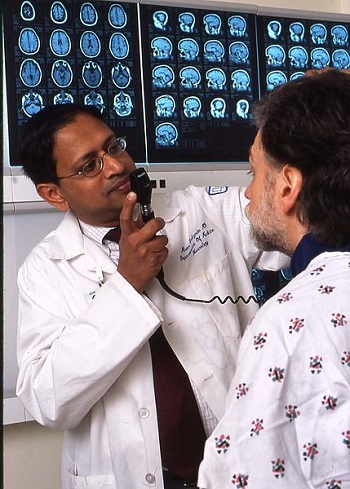Employers and Universities: Work with us?

How to become a neurologist
If you’re fascinated with the human brain and how it works, neurology could be the career path for you. Neurologists are persistent, dedicated and have top observational skills. It’s rewarding but tough work.
If that sounds like you, read on to discover how to become a neurologist and whether this healthcare career with a difference is right for you.
'Neurologists are persistent and dedicated. Find out if the role is for you'
What is a neurologist?
A neurologist is a kind of doctor who diagnoses and then treats conditions which affect our brains and nervous systems. So this means our spinal cord, as well as the many different nerves and muscles that send information to our brains.
What do neurologists do?
Neurologists diagnose and treat issues like strokes, cerebral palsy, brain tumours, epilepsy, severe headaches, blackouts and lots of other conditions – in fact, more than 5,000 neurological diseases have been discovered.

They can also help with infectious diseases like meningitis (because that can cause brain damage), and nerve diseases which could result in patients having problems with their feeling of touch.
Usually a neurologist will be able to diagnose patients by doing a physical examination and asking them about their symptoms. Sometimes though further investigations might be needed – using things like blood tests, scans or electrical tests. There have also been lots of new developments in diagnosing, so neurologists can also use genetic testing. Neurologists don’t usually carry out surgery.
They often work long and unusual hours.
The everyday tasks of a neurologist could include:
- Making appointments and meeting patients.
- Doing different examinations and tests to find out more about patients’ cognitive ability (which means their ability to think, reason, and make judgements).
- Treating conditions.
- Following up with patients who need long-term care.
- Referring patients to other specialists or surgeons.
What is the neurologist salary UK?
A junior neurologist can expect to earn an annual salary of up to £28,000. The neurologist salary UK is up to £75,000, and a consultant neurologist can get paid up to £101,000.
What skills and qualities would I need to become a neurologist?
Check out this list of skills that neurologists have, and see if you have any of these qualities.

aware that the work is often very challenging, and the training is
long and demanding.
- Problem-solver: a knack for finding solutions to problems by observing and asking questions.
- Communicator: able to clearly explain your point and put people at ease.
- Compassionate: able to put yourself in other people’s shoes.
- Enthusiastic: dedicated and keen to learn.
- Composed: able to stay calm under pressure.
- Analytical: able to think logically and rationally.
- Organised: great at managing your time.
Learn more about the skills needed for a healthcare career.
What degree do you need to be a neurologist?
If you’re wondering what degree do you need to be a neurologist, we can tell you that you’ll need a degree in medicine. It’s similar to the path to becoming a doctor.
Tell me how to become a neurologist.
So in order to become a neurologist, you’ll need to have completed:
- A-levels; the exact requirements vary depending on the university you’d like to apply to, but you will typically need three As in chemistry, biology and either maths or physics.
- Five-year degree in medicine that’s recognised by the General Medical Council.
- Two-year Foundation Programme of general training.
- Two or three years of core training (this involves between four and six placements in different medical areas). You should then apply for Membership of the Royal College of Physicians.
- Specialty training in neurology – this usually takes five years.
Does becoming a neurologist sound right for you? We know it’s a big decision – so the best way to help you make it is by doing some work experience. Explore placements with the NHS here.
Image credits
Main image via Freepik; neurological tests via US Air Force by Tech. Sgt. Barry Loo/Released; and neurologist via Wikimedia.
